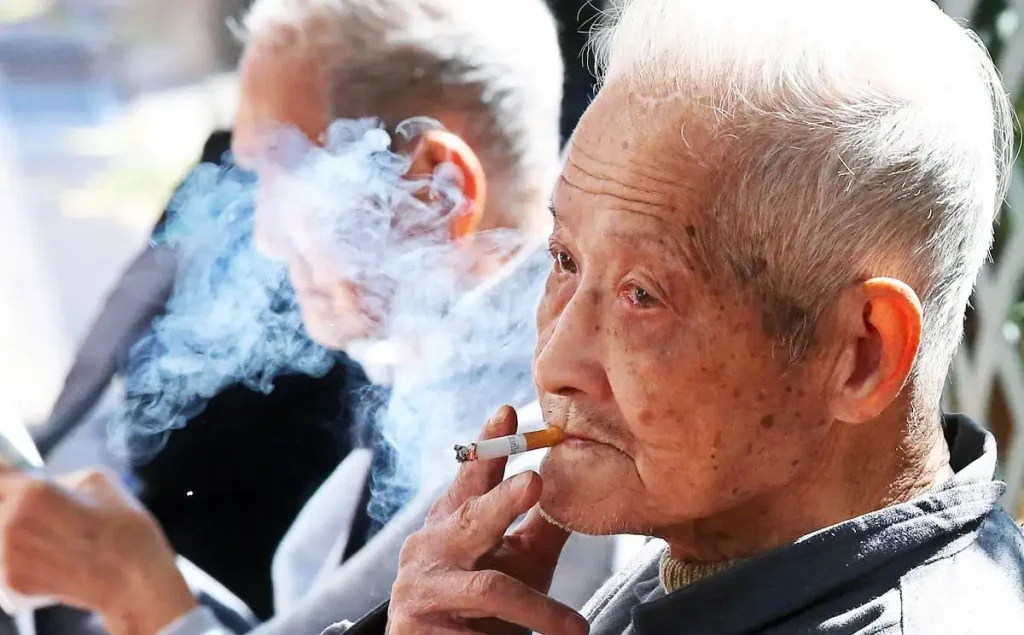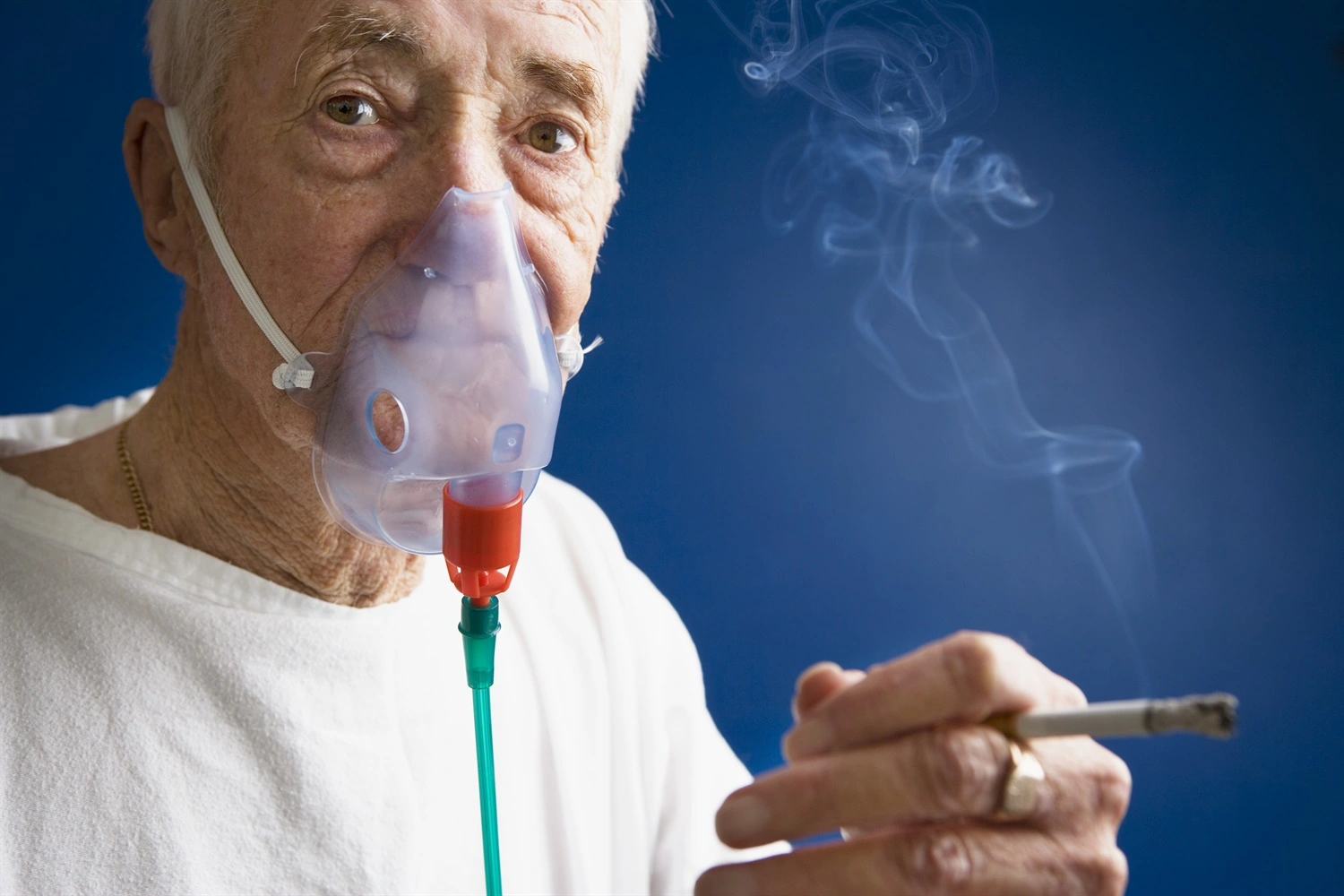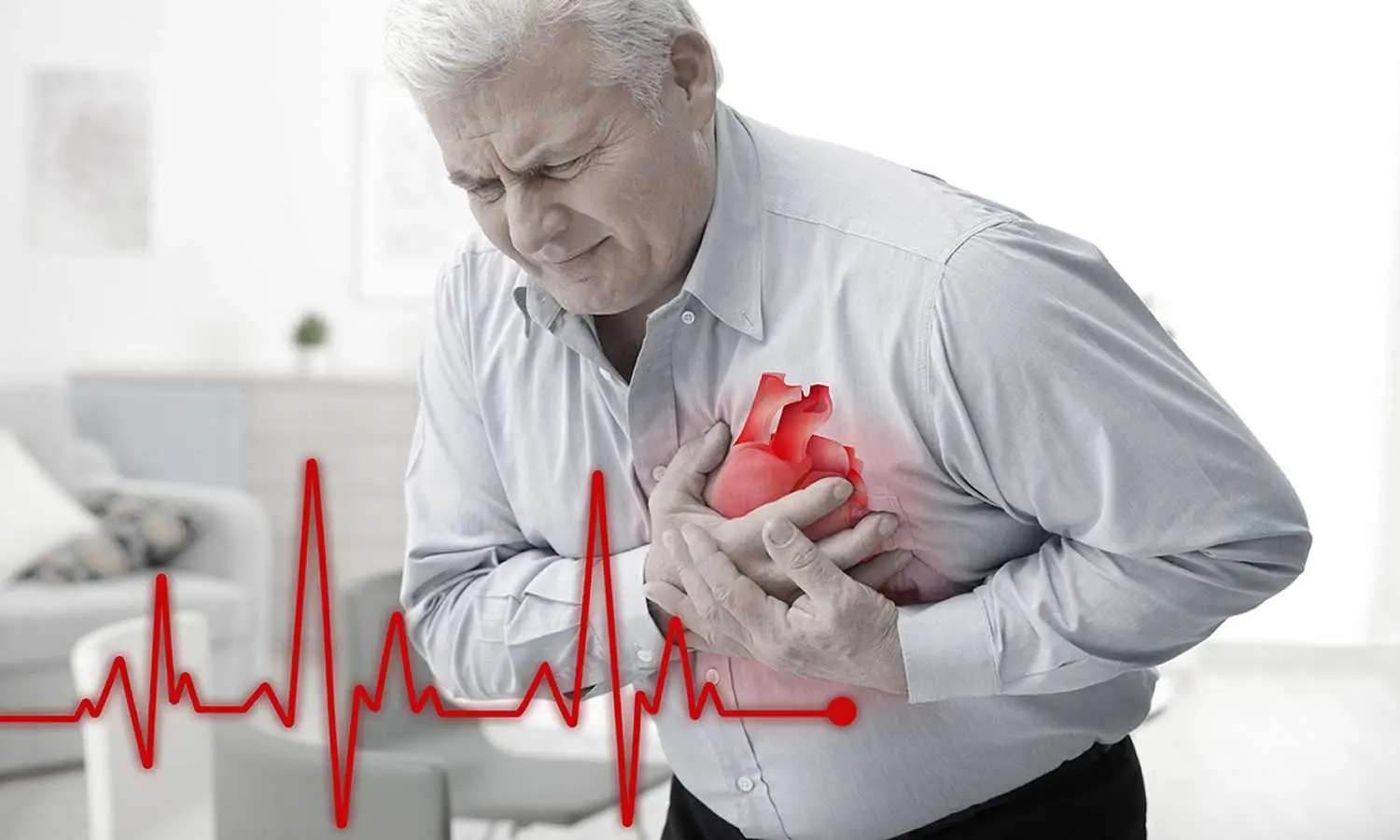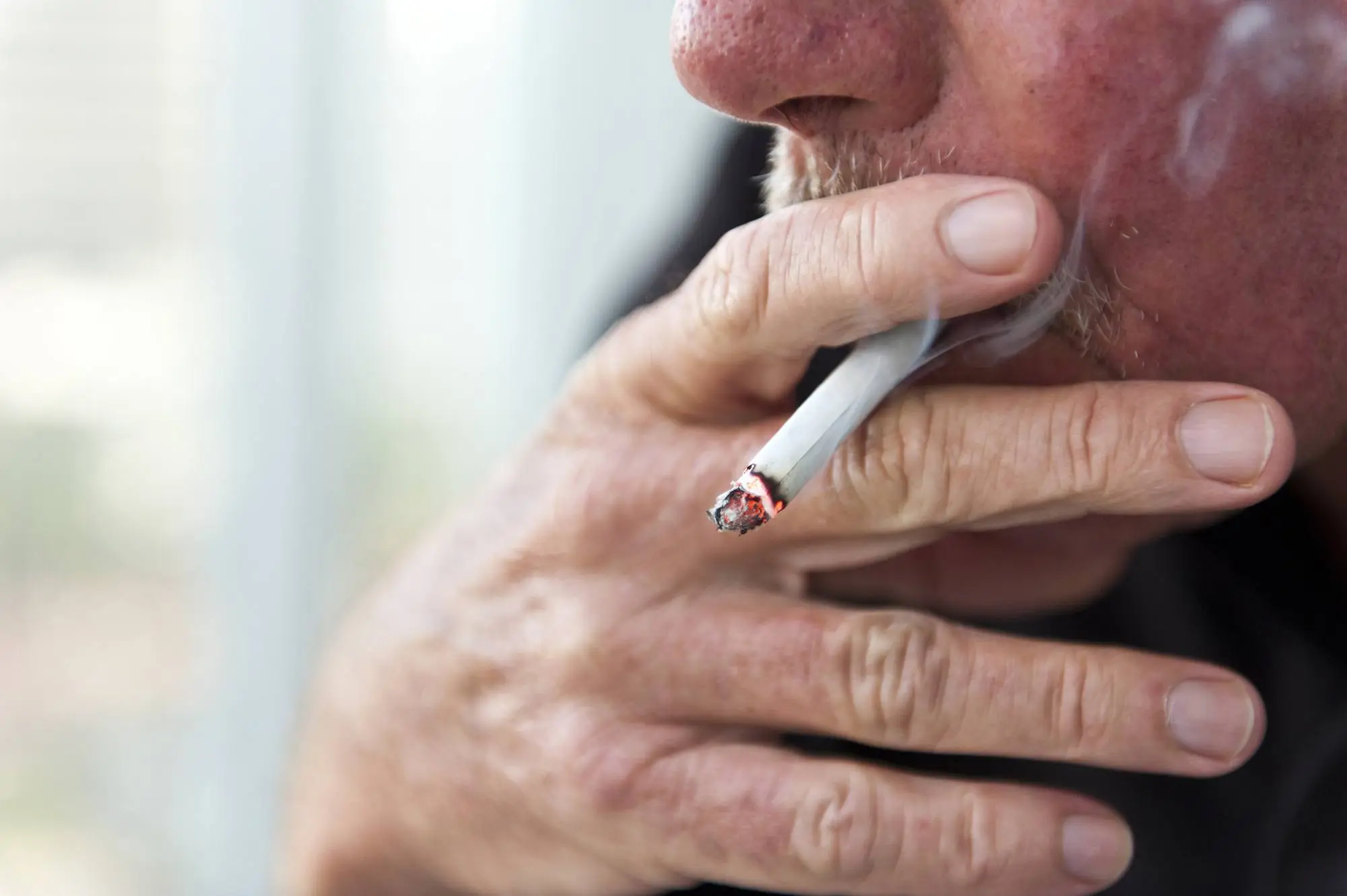
Harms of Smoking in the Elderly +Diseases Smoking Causes
How smoking can affect the elderly? The side effects of smoking in seniors have irreparable dangers. Lung cancer or heart disease are only part of the harms of smoking in the elderly. Research by the World Health Organization shows that every 8 seconds, one person in the world loses their life due to smoking. The younger the age of starting smoking and the greater the number of cigarettes smoked and the depth of inhalation, the higher the mortality rate. In this article from the humanhealthmag website, we will examine cigarette smoking health problems among the elderly.
In the long term, cigarette smoke will paralyze the ciliated cells of the respiratory wall and cause lung infections in the elderly. Also, the mental health of the elderly is greatly affected by smoking, and depression and anxiety in these people will be more common with smoking than others.
What Is the Effect of Smoking on Life Span?
Research shows that if people start smoking in their teens (more than 70 percent of smoking cases occur at this stage) and continue to do so for 20 years or more, they will die 20 to 25 years earlier than people who have never smoked in their lives.
What Diseases Does Smoking Cause in Old Age?
Smoking is an act that over time may cause heart, vascular, liver, lung, etc. diseases or affect the quality of life of the individual. The elderly are among the sensitive groups who should avoid smoking, and this issue is so important that not taking it seriously endangers the elderly’s life. Elderly people who have had a history of smoking or currently smoke are twice as likely to suffer from diseases and die from heart attacks as others. Nicotine, the substance used in cigarette ingredients, is highly addictive and destructive, and its consumption will cause gradual mortality among people. In this section, we will introduce you to some of the diseases that smoking will gradually cause in old age. These include:
- Cardiovascular diseases
- Heart and brain stroke
- Pulmonary obstruction
- Fractures and osteoporosis
- Type 2 diabetes
- Disability and hospitalization
- Low quality of life
- Dementia
- And etc.
The cases mentioned are some of the difficult problems and diseases that will definitely occur in old age for anyone who smokes and does not intend to quit.

Lung Harms of Smoking in the Elderly
In the past, if someone had a chronic cough, the first diagnosis that came to everyone’s mind was “tuberculosis”. But today, the most important cause of chronic and long-term cough is the use of cigarettes and other tobacco products.
Of course, everyone knows that smoking causes coughing, but perhaps many do not know that smoking causes lung damage and destroys the lungs in the long term. This damage progresses to such an extent that the elderly need a lung transplant to continue their life and cannot survive without an oxygen capsule and become unable to do even the smallest daily activities.
Harms of Cigarette Smoke on the Lungs of the Elderly
Long-term cigarette smoke paralyzes the cilia of the cells lining the respiratory tract, increasing the elderly’s susceptibility to lung infections. The elderly and people who smoke get the flu sooner and their illnesses take longer to heal.
90 percent of lung cancers and 70 percent of lung diseases in people and the elderly are related to tobacco use. Carbon monoxide is one of the main toxic gases in car exhaust and cigarette smoke. The affinity of this gas for blood is much higher than oxygen. This gas reduces the oxygen activity in the blood of professional smokers by 15 percent.
Lung Cancer and Cigarettes
The risk of developing lung cancer in smokers is extremely high, so that in individuals and the elderly who smoke up to 14 cigarettes a day, the risk of developing lung cancer increases by 8 times. If this number reaches 25 cigarettes, the risk of developing lung cancer increases by 20 times. The risk of dying from lung cancer increases with the number of cigarettes smoked, meaning that the more cigarettes a person smokes, the more deadly lung cancer becomes.
Lung Cancer in Women and Men Smokers
The risk of lung cancer in women smokers is 20 times higher than in men, and in men, 10 times higher than in non-smokers. This risk is more related to the duration of tobacco use than to the number of cigarettes smoked. Out of every 1,000 people who die from lung cancer, 900 are smokers.
Obstructive Pulmonary Diseases
The main cause of obstructive pulmonary diseases is smoking. Of course, factors such as genetics and occupation can cause degrees of this disease, but the main factor is smoking. Even pollution can only aggravate the disease and is not the cause of the disease. This disease is largely irreversible and includes various types, the most important of which are “chronic bronchitis” and “emphysema”.
Of course, these two forms exist in different degrees in each patient, and one dominates the other. All types of tobacco such as cigarettes, pipes, hookahs and cigars can affect the development of this disease, and the number of cigarettes used and the duration of use affect the severity of the disease. The only main treatment for this disease is not smoking and quitting smoking.
Although in some cases, this disease is irreversible, if smoking is stopped before the age of 50, the progressive course of complications is reduced. This is because at this age, the lungs have not yet completely lost their strength and ability to regenerate. The noteworthy point is that this disease can also occur in people who are exposed to other people’s cigarette smoke.

Cardiovascular Harms of Smoking in the Elderly
Today, one in three deaths in the world is due to heart disease. Smoking is the main factor that causes this disease. The risk of heart attack in smokers under 40 is 5 times that of non-smokers. This fact is important because young smokers never consider themselves deserving of heart disease and sudden death at this age.
Therefore, they postpone quitting until middle age and old age, which are the ages of prevalence of these diseases. But unfortunately, repeated cases of sudden death, cardiac arrest during sleep and wakefulness have been seen in young smokers, without any underlying disease or problem.
Harms of Smoking on the Heart of the Elderly
By narrowing the internal vessels of the body, smoking causes the heart to work harder to push blood through the narrowed vessels with greater pressure. This causes double the pressure on the heart and the resulting complications. Cardiovascular cancer is one of the common cancers in people and elderly smokers. Cardiovascular diseases caused by smoking kill more than 600,000 people in developed countries each year. Among the cardiac harms of smoking in the elderly are the following:
- Arterial blockage
- High blood pressure
- Increased heart rate
- Increased risk of high blood pressure
- Causes heart attack and stroke in people and the elderly
12 Harms of Smoking in the Elderly
Lung cancer or heart disease are not the only harms of smoking in the elderly, but there is a range of health issues and problems related to tobacco use that can occur in senior smokers, some of which include:
1) Hair loss
As the immune system of smokers and the elderly is weakened by tobacco use, their bodies become susceptible to various diseases, including “disseminated lupus.” This disease can cause hair loss, mouth ulcers, and acne on the face, head, and hands.
2) Cataracts
Smokers and the elderly are 40 percent more likely than other people to develop cataracts, ophthalmology in seniors, clouding of the lens of the eye, blocking light from passing through, and ultimately blindness.
3) wrinkles
Smoking destroys the proteins that make the skin flexible. It also causes depletion of vitamin A and restricts blood flow in skin vessels. Smokers’ skin is dry and has fine lines and folds around the lips and eyes.
4) Hearing loss
Smokers and the elderly are 3 times more likely to develop middle ear infections than non-smokers.
5) Skin cancer
Smokers are 2 times more likely to develop a type of skin cancer (scaly, raised bumps on the skin) than non-smokers.
6) Tooth decay
Smokers are 1.5 times more likely to lose teeth prematurely than non-smokers.

7) Osteoporosis
Smokers’ bones lose their density and break easily. They also take up to 80% longer to heal after a fracture.
8) Stomach ulcers
Smoking reduces the stomach’s resistance to bacteria and lowers it. It also causes the following:
- Residual acid remaining in the stomach, resulting in damage to the stomach wall
- Weakening of the stomach in neutralizing stomach acid and resisting it after eating
Note: Stomach ulcers in smokers are difficult to treat and the likelihood of their healing is usually low as long as the elderly person smokes.
9) Discoloration of fingers
Droplets of cigarette smoke accumulate on the fingers and nails due to continuous smoking, causing them to change color to yellowish brown.
10) Cervical cancer and miscarriage
Smoking during pregnancy can increase the risk of giving birth to a low-birth-weight baby and developing health problems in the future. Also, abortion is 2 to 3 times more common in mothers who smoke.
11) Male impotence
Smoking causes a decrease in sperm count and reduces blood flow to the penis and impotence in these people. Sexual infertility is also more common in male smokers than in non-smokers.
12) Cancer
There are more than 40 carcinogenic elements in cigarette smoke. The risk of lung cancer in smokers is 22 times higher than in non-smokers. If smokers continue to smoke, they are likely to develop other types of cancer, such as: tongue, mouth, glands, salivary glands, pharynx, nose, throat, esophagus, stomach, kidney, anus, larynx, pancreas, and penis.
Concluding Remarks
Research by the World Health Organization shows that every 8 seconds, one person in the world dies from smoking. Everyone knows that smoking causes coughing, but perhaps many do not know that smoking damages the lungs in the long term and destroys them.
Lung cancer or heart disease are not the only harms of smoking in the elderly, but there is a series of health issues and problems related to tobacco use that can occur in terms of physical conditions and immune resistance in smokers.
It is good to know that smoking will be a changeable factor in your lifestyle, and wherever you start to quit, you will ensure your future health and old age, and you will prevent the occurrence of diseases that will cause physical, mental, and emotional weakness in old age; therefore, even if you are in your old age, it is better to stop smoking now to prevent the occurrence of numerous diseases. No matter how old you are or how many years you have smoked, quitting smoking at any time will improve your health.
Your feedback is the secret ingredient to improving our content! Comment below and let us know how this post resonated with you. We want to hear ALL your ideas!

Frequently Asked Questions
What are the Harms of Smoking in Elderly People?
The harms of smoking on the health of the elderly are so great that at first glance, the person may not have any problems, but after prolonged use, they may develop diseases and specific problems
What are the Harms of Quitting Smoking in Old Age?
Feeling irritable is one of the harms of quitting smoking in the elderly. One of the temporary symptoms of quitting smoking is being nervous and irritable. These symptoms are caused by the lack of nicotine in the body and also by quitting the smoking habit. Diet after quitting smoking is best for minimize these effects.
